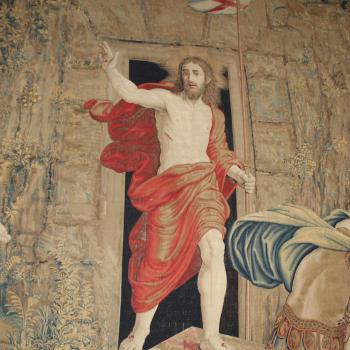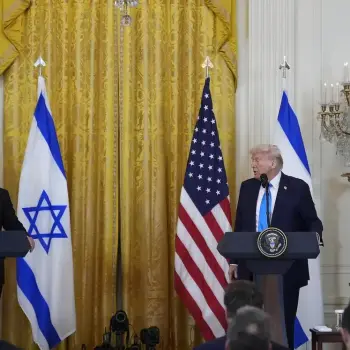His invitation to Hinduism Today outlined plans for a June 1997 international conference in Milan on the controversial subject of conversion to Hinduism, among other subjects. The problem is serious in Italy, for Hinduism is not officially recognized by the government. An individual's conversion and name change cannot be legalized. Tax-deductible status is not granted to Hindu organizations. Hinduism Today accepted the invitation and sent representatives Acharya Ceyonswami and Sannyasin Skandanathaswami to the conference.
It was in 1985 that Swami Yoganandagiri established the Gitananda Ashram in Savona, perched in the hills a few miles from the Mediterranean Ligurian Sea above Corsica. He became a yogi in his teens and was trained in India by the late Swami Gitananda of Pondicherry, among others. He learned Sanskrit, absorbed the South Indian Agamic tradition, received sacraments making him a Hindu, and was ultimately initiated as a renunciate monk.
Malaysian-born Skandanathaswami reported later, "I couldn't believe my eyes when we reached Savona. Swami Yoganandagiri and a small band of dedicated Italian Hindus have established full, traditional Hinduism at his ashrama. Stepping into his Shri Chakra temple was like being in India. Other swamis teach yoga but often remain at a distance from Hinduism. But Yoganandagiri boldly declares his Hindu heritage, and that in Italy!"
The conference was the first organized by Swami's newly created Unione Induista Italiana (Italian Hindu Union), as an attempt to unify under a Hindu banner those Italians already immersed in Indian culture. The three days included workshops on Indian dance, yoga, ayurveda, and astrology, all presented by leading Hindus.
But a pivotal debate was taking place at meetings that pitted Italian professors of religion against Hindu swamis and delegates on the issue of converting to Hinduism. Chief adversary Professor Mario Piantelli opined that conversion to Hinduism is impossible for those not born in India. He was unanimously countered by all the Hindu delegates, who cited Indian Supreme Court decisions and statements by Swami Vivekananda and Dr. S. Radhakrishnan, former president of India.
That might have been the end of the issue, but the day after the conference ended, a national Italian daily, L'Unita of Rome, published Piantelli's opinions in a major article. Swami Yoganandagiri flew to Rome to issue a rebuttal, and the debate entered the national forum.
Swami Yoganandagiri wrote in his rebuttal:
Contrary to Professor Piantelli's statements, the Italian Hindu Union comprises people who not only love India, but have received a religious formation in India with all sacraments and who identify themselves deeply and seriously with the Hindu faith. The statement that Hinduism is a neologism referring only to those born in India is a wrong interpretation. The word Hindu has evolved. Today in modern India Hindus are those following the principles of Sanatana Dharma. Its main characteristic is its universality. There are no decrees or scriptures which say only those born in India can be Hindu. What about the children of the Hindus born in America, Africa, Sri Lanka, Malaysia, Mauritius and Europe? They call themselves Hindu just like we Italian Hindus. So how can it be an exclusive religion only for those born in India? On the contrary, the Supreme Indian Court in 1966 codified the definition of Hinduism and in 1995 confirmed that: "Hindus are those who accept the Vedas (sacred text) as the highest religious and philosophical authority and are tolerant and accept that truth can have many facets, who believe in cosmic cycles, rebirth and pre-existence and recognize that many paths lead to salvation." Italian Hindus, among which there are also Indian citizens living in Italy, already exist and are recognized by Indian Hindus and Buddhists. Many governments have legally recognized Hinduism.
Swami had many allies. Dr. R. Gopalakrishnan, the Director of Radhakrishnan Institute for Advanced Study in Philosophy, University of Madras said, "As an Indian and as a Hindu, I find there is no truth in this statement that those who are born in India alone are eligible to become Hindus." Dr. Atulchandra S. Thombare from Pune, India, noted, "A man can change his nationality, and even his sex, why not his religion?" Indian Ambassador to Italy, Mr. Fabian, a Catholic, said, "Faith is a matter of the heart and personal choice. If someone practices Hinduism and is accepted by Hindus, then he is one."
Swami is allying himself with the Buddhists, who are also pressing for official recognition in Italy. They are, according to Swami, two years ahead of the Hindus in the decade-long process of changing the complex Italian laws relating to conversion.
The Ceremony of Welcoming Back




